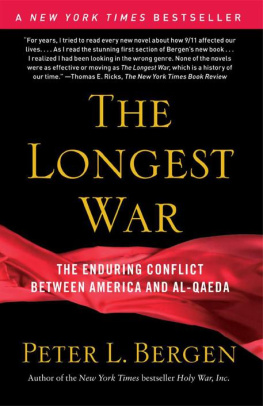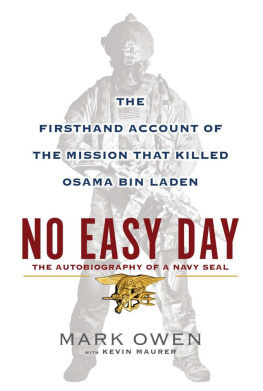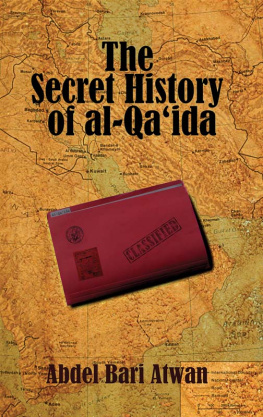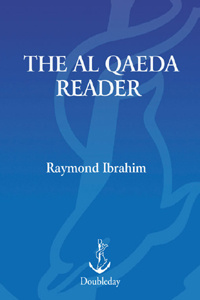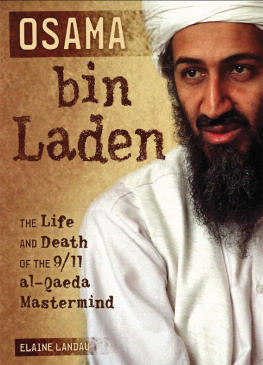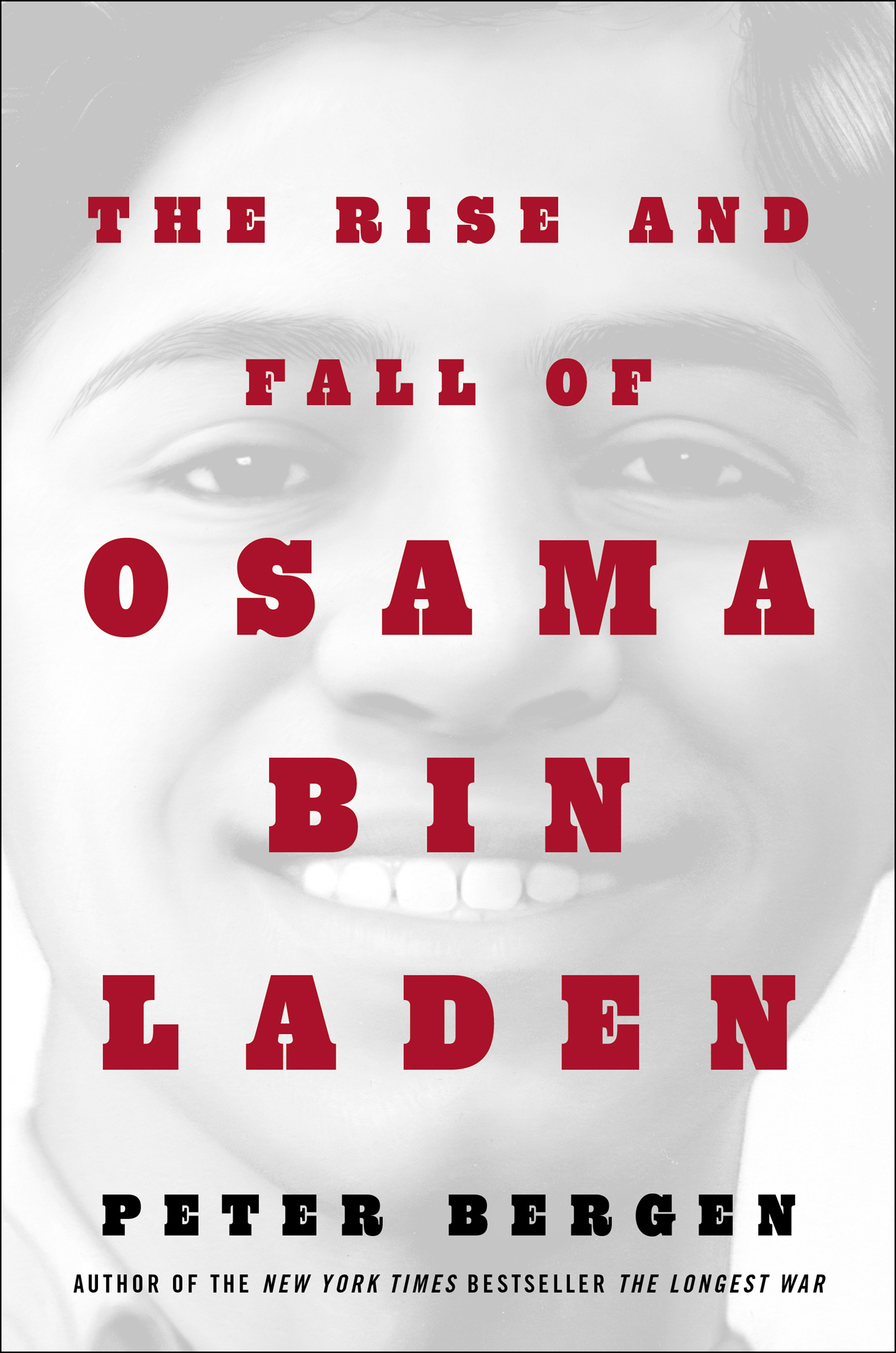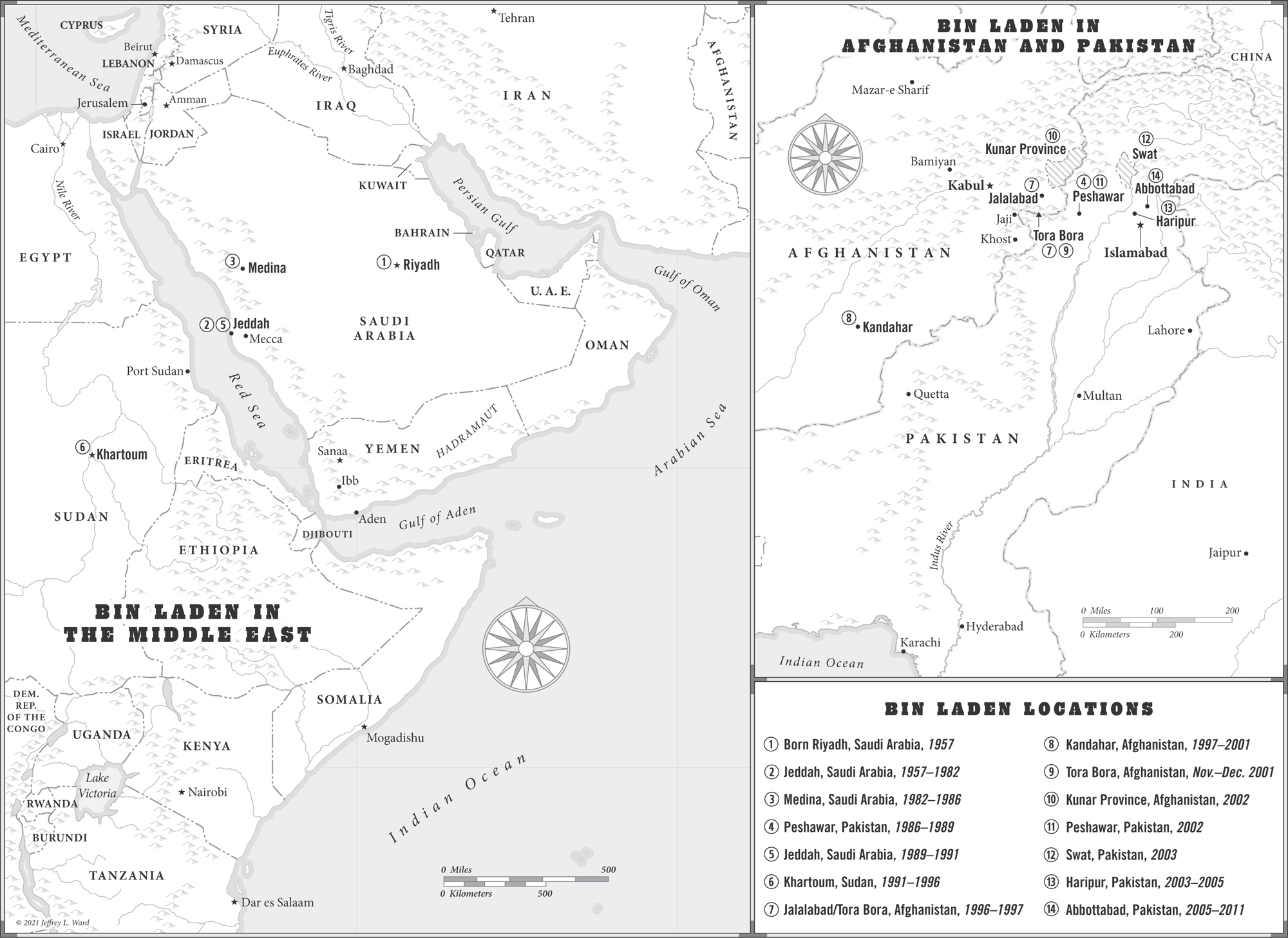The Rise and Fall of Osama bin Laden
Peter Bergen
Author of The New York Times Bestseller The Longest War
Thank you for downloading this Simon & Schuster ebook.
Get a FREE ebook when you join our mailing list. Plus, get updates on new releases, deals, recommended reads, and more from Simon & Schuster. Click below to sign up and see terms and conditions.
CLICK HERE TO SIGN UP
Already a subscriber? Provide your email again so we can register this ebook and send you more of what you like to read. You will continue to receive exclusive offers in your inbox.
For Grace, Pierre, and Tresha
A NOTE ON TRANSLITERATION
A rabic names have been transliterated in a manner that is standard for Western readers. I have used Osama bin Laden and al-Qaeda rather than Usama bin Ladin and al-Qaida. I have also used the spelling Binladin when referring to the family business, as this is how it generally appears in English. In the case of Arabic names that appear in documents written in English, I have retained the original spelling that was used in the document.
BIN LADEN FAMILY TREE
PROLOGUE HOPES AND DREAMS AND FEARS
Targeting the Americans and the Jews by killing them in any corner of the Earth is the greatest of obligations and the most excellent way of gaining nearness to Allah.
Osama bin Laden
I t was Amals turn with the Sheikh as a moonless night settled on Osama bin Ladens compound in Abbottabad, Pakistan, on May 1, 2011. Bin Laden had married Amal, his youngest wife, when she was only sixteen and he was forty-three. Still, their two-and-a-half-decade age difference did not stand in the way of what turned out to be a real love match, much to the fury of bin Ladens three older wives.
In the late 1990s, when bin Laden had first introduced the notion to his older wives of taking a new wife, he had advertised Amal as a mature thirty-year-old who knew the Koran by heart. Instead, Amal was a barely educated teenager from rural Yemen who had suddenly arrived in Afghanistan a year before their husbands great victory on 9/11 and she had monopolized much of his time. Bin Ladens older sons were also angered by their father marrying a woman who was even younger than they were. The Yemeni bodyguard who had helped arrange the match between bin Laden and Amal said that because of the familys dim view of this union, bin Laden initially dragged round his fourth marriage like a ball and chain.
Over time that would change. Amals firstborn, Safia, came into the world just days after the 9/11 attacks. Bin Laden named her after Safia, the aunt of the Prophet Mohammed who had killed a Jew. Bin Laden explained that he hoped that his daughter Safia would also grow up to kill Jews.
After 9/11, during bin Ladens nine long years on the run, Amal gave birth to another four children in Pakistan. To avoid any troublesome questions about why this Arab woman was choosing to have her babies in provincial cities in Pakistan, the nurses and doctors were told that Amal was deaf and dumb.
Almost a decade after his 9/11 victory, bin Laden, aged fifty-four, had now found what he believed to be the perfect hiding place in Abbottabad. He was living out a comfortable retirement in an obscure Pakistani city in the pleasant foothills of the Himalayas, the kind of urban backwater where few expected him to be hiding. He should have been feeling content.
Yet during the first weeks of 2011, bin Laden was in a state of agitation. History, it seemed, was passing him by. The Arab world was in unprecedented upheaval, and the man who had hoped to bring attention to the frustrations of that world with the deadliest terrorist attack on U.S. territory was being ignored. This is what gnawed at bin Laden more than anything.
Bin Laden was perplexed by how to respond to the momentous events of the Arab Spring uprisings across the Middle East, which had seemed to come out of nowhere at the beginning of the year. In a letter to a top aide bin Laden wrote that these revolutions were the most important developments that the Muslim world had witnessed for centuries, yet his al-Qaeda terrorist group was playing no role in the wave of protests engulfing the region. He was unsure what to say publicly about the uprisings that in recent months were sweeping away the geriatric, secular dictators who had lorded it over Egypt, Libya, and Tunisia for so many decades. Bin Laden saw these regime changes as an opportunity to try and make himself relevant again.
The challenge posed by the Arab Spring explains why bin Laden was so delighted that he was finally back in touch with Umm Hamza, his third wife, whom he hadnt seen since around the time of the 9/11 attacks. Khairiah Sabar, known by all in the bin Laden family as Umm Hamzathe mother of Hamzawas eight years older than bin Laden. He saw her as his intellectual peer, perhaps even as something of a mentor, since her knowledge of the Koran was very deep. He fervently hoped that Umm Hamza, who had a doctorate in child psychology, would help him think through how best to respond publicly to the Arab Spring. He believed she could help him solve a problem: The Arab Spring revolutions were largely instigated by liberals and members of the Muslim Brotherhoodan Islamist movement that al-Qaeda disliked because of its willingness to engage in democratic politics. Could bin Laden nonetheless present himself as the leader of the Arab Spring?
Following 9/11 and the U.S. campaign that months later ousted the Taliban from power in Afghanistan, Umm Hamza had escaped to neighboring Iran with other members of bin Ladens family as well as some of the leaders of al-Qaeda. They lived there under various forms of house arrest for many years. The Iranian regime likely saw these bin Laden family members and leaders of al-Qaeda as potential assets that could be used in negotiations with the United States in the event of a diplomatic agreement with the Americans. But after al-Qaeda kidnapped an Iranian diplomat in Pakistan in 2008, the Iranians and al-Qaeda started quietly negotiating a prisoner swap that involved releasing members of the bin Laden family. In July 2010, Umm Hamza, together with her son, Hamza, set out for the 1,500-mile trip from Tehran to northern Waziristan, an arid, craggy, remote region in Pakistans tribal belt along its border with Afghanistan where key al-Qaeda members were hiding.
From his Abbottabad hideout bin Laden spent many hours writing letters to them about how they might all reunite. In a letter that he sent to the sixty-two-year-old Umm Hamza in early January 2011 he wrote tenderly, It comforts me to hear your news, which I have waited for so long in years past. How long have I waited for your departure from Iran.
Bin Laden told Umm Hamza that a member of his team would buy her a computer and some flash drives so she could start providing her observations and ideas, which bin Laden could then incorporate into his public statements. He explained to his wife that he wanted to share some of my positions, so together they could formulate what he was going to say publicly on the tenth anniversary of 9/11. He wrote, We are awaiting the tenth anniversary of the blessed attacks on New York and Washington, which will be in nine months. You are well aware of its importance. So, I sent you all the statements and ideas I have on my computer to contribute to putting together the statements for this important anniversary.



